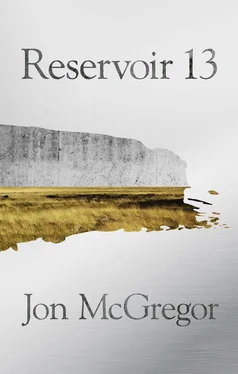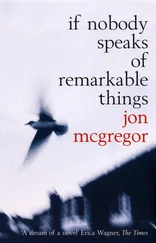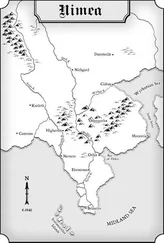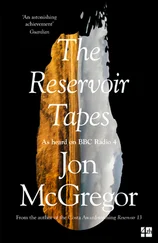In June there was a party at the Hunter place for the end of Sophie’s A-level exams. There was a marquee and a band and candles in glass jars lining the driveway. There were cars parked along both verges on the road and they did some damage. The noise of the party carried down to the village. Sophie’s parents were there but they mostly kept their distance, and made sure Olivia stayed away from the punch. In the morning Jess made Sophie a hot drink and brought her out into the fresh air. They sat up in the folly, Sophie wrapped in a duvet, looking down over the wildflower meadow and the orchard and the courtyard. There were a lot of empty bottles about the place. There were young men sleeping on the grass beside the ornamental lake. I don’t want anyone driving home until they’ve had a proper breakfast, Jess said. They’ll be pickled in alcohol. Sophie nodded. Her eyes were red. Jess put an arm around her. Harry didn’t work out then? I should have known better, Sophie said. It’s my own stupid fault. Jess turned Sophie’s face towards her and looked her in the eyes. Really? she said. Because you were the one putting yourself around? Sophie looked down. No, but still. I should have done more to keep his interest. Sophie Hunter, Jess said; that is not how I brought you up. I’ll let you off this time because you seem a little fragile, but remember this: where a boy puts his John Thomas is not your responsibility. It’s his. Okay? Jess asked who the girl was. Someone called Jasmine, Sophie said, from Cardwell. Jess couldn’t help spluttering at the mention of the place, and Sophie laughed faintly. Exactly, she said. And what kind of a name is Jasmine anyway? Jizzmin is more like what I heard. Jess put up a hand and told Sophie to hold back. Come on, Mum, I’m allowed to be childish about it. I’m not worried about childish, Jess said. But don’t go blaming your sisters for men’s behaviour. Mum! She’s not my sister. We’re all sisters, sweetheart. Oh, Mum, please; this isn’t the 80s. There was a splash and a shout and two boys emerged from the lake fully clothed, draped in weeds and shouting with either hysteria or fury. Sophie said she thought she was going to be sick, and her mother helped her over towards the bushes, gathering her hair away from her face and stroking her back.
In July the first fledgling swallows were seen tumbling from their high nests and breaking into flight, and were soon sweeping across the meadow grasses in search of food. In the morning the sun angled over the hillside as Les Thompson led the last of his cows from the parlour towards the day’s grazing. Les closed the gate behind them and headed back to the parlour for washdown. There was paperwork to sort and he didn’t fully understand it. Since his sister had passed the numbers weren’t adding up. In the old quarry by the main road the larvae of small coppers were feeding on the sorrel plants where they’d hatched, carving deep grooves in the leaves where they could hide while the sunlight shone through. A Facebook account was discovered in the name of the missing girl, claiming that she was travelling in Thailand and Goa. There were photos of a young woman matching the computer-generated images of Rebecca Shaw the police had put out a year or so before: on the beach, in a bar, sharing a hammock with a friend. It was quickly shown to be a hoax, and the student behind it had issued an apology through her family’s solicitor before she even got back to the UK, but afterwards there were people who thought there might have been something to it. Mrs Simpson held an open afternoon at the school for the children who’d be starting in September. There were only the Cooper boys and a girl from the new housing-association flats, so there was plenty of time to talk. She showed them around the school, and later while the children played in the corner of Miss Dale’s room she made hot drinks for the parents and answered their questions. She was surprised by how many questions Su Cooper had; she’d always thought of Su as being rather quiet. Austin Cooper didn’t look surprised at all. Su asked about the curriculum, and opportunities for creative play, and about the use of outdoor space. She also asked what diversity training the staff had received, and Mrs Simpson was confused for a moment. There was no need to worry about that, she told Su; everyone at the school was always treated equally. We like to think we’re more or less colour-blind, she said, smiling. I mean, until you mentioned it I wasn’t even really thinking of you or the boys as being, you know, ethnic or anything. You’re just Su to all of us, aren’t you? There was a look on Su’s face that Austin recognised but which Mrs Simpson appeared not to notice at all. The other mother asked about school uniform.
August was hot and slow. The seed-heads of cow parsley and thistle blackened in the field margins, collapsing in the early dew. The river was clear and slow and the sun struck it hard. There were brown trout teeming thickly through the water. In the evening Ian Dowsett set up in the shade of a beech tree and tried dropping a few different mayflies but nothing was right for the rise. He could hear voices from someone’s back garden at the top of the steep bank and the air was still. In Cardwell the cricket was drawn for the second time in three years and some of the younger players started to talk confidently about a turn in the tide. In Fletcher’s orchard the blackbirds were fattening on the early windfalls, lazy about territory and forgetting to sing. Sally watched them from the kitchen window while she made an omelette for dinner. She folded half of it on to a plate for Brian to have later. He’d left a note on the table to say he’d be late back from the parish council. When she’d eaten she left a note saying she’d be up early for a walk so please not to wake her. She drew a smile and a kiss at the bottom of the sheet of paper. She wondered if they’d counted would there have been more kisses in writing than in real life. She didn’t suppose it mattered too much. Later when he came in she heard the front door close so gently it barely clicked. She reached over and turned out the light, so that he wouldn’t see it on the way to his room and think he’d kept her waiting up. There were springtails in the old hay at the back of the lambing shed, feeding and laying eggs and hatching out, and at the end of a long stem a single male sat poised with his tail hooked to his belly, ready to spring into the air for the first time in his life. There was a moment’s hesitation. Overnight the heat broke into heavy rain but by late morning the ground was dry. In his studio Geoff Simmons turned the new pots on the wheel, using a narrow knife to cut a bevelled edge at the base and a leather to work the rough patches smooth. There was a customer looking at the pots on display and he was trying to judge whether to speak. When she’d come in he’d acknowledged but he knew people preferred to browse. He knew they liked seeing him work. But she was the first customer all week and he couldn’t afford for her to just leave. She was on her own which might mean she had intent. She was holding a pot well and letting it sit in her hand. She had a good eye. It was back on the shelf and she had glanced at the door. This was where she would decide. He took his foot from the pedal and let the wheel slow. He glanced up and let himself look surprised that she was there. The missing girl’s mother was seen at the tea rooms. The girl who served her had no idea who she was, and wasn’t much interested when she was told. That was a long way back now though weren’t it, she asked, and the woman working alongside her conceded that maybe it was.
The missing girl was seen camping with the protesters at the Stone Sisters site, her hair in thick plaits and her face smudged with woodsmoke, and the police had to go and verify the girl’s real identity. The numbers at the camp had dwindled since it became clear that no excavation was imminent. There was an altercation between one of Jackson’s boys and the handful of protesters who were left. Traditionally the Jacksons had used the area for grazing, and they were of the opinion that it was time the camp cleared out. But they had no legal right to the grazing, and the Culshaw Estate didn’t want the expense of an eviction. So the Jackson sheep went elsewhere, and the protesters stayed. The Tucker place had been sold for a while but there was no sign of anyone moving in. The roof had been repaired but nothing else. The abandonment seemed to offend people more than an empty holiday cottage would. The Tucker descendants weren’t known and so couldn’t be pressed. The night before leaving for university, James and the others went for a drink together in town. There was talk of how much they’d miss each other, but there was no real regret that they were heading different ways. There were complications, after all. Lynsey and James had had a confusing conversation in which they’d agreed that they weren’t breaking up exactly but that they shouldn’t be tied, they should be free to see other people, they should see where things stood at Christmas, or next summer. They’d all keep in touch; of course they would. They’d visit. This had all been said already, and so by the time they were sitting in the beer garden by the river they had nothing in particular left to say. They talked about the packing they hadn’t finished, and the routes they’d be taking the next day. They drank quickly, to fill the gaps in the conversation. Lynsey was driving, and was first to say she wanted to get back. She was parked in the car park on the other side of the river, and the bridge was a quarter of a mile down the road. James was already taking off his socks and shoes. One last time, he said. Sophie finished her drink and slipped off her sandals. Lynsey rolled her eyes. Really? Rohan was still smoking a cigarette. He held it in his mouth while he took off his shoes and socks, and the smoke curled up through his fringe. Lynsey looked impatient but she leant down and slipped off her shoes as well. I definitely won’t be doing this when we’re back at Christmas, she said. Why, will you be mature by then? asked James. She gave him a look which was less playful than he’d been expecting. They all held their shoes out on the table. It was dark now and the light from the pub spilled out across the grass. They banged their shoes on the table and counted to three before running to the end of the garden and hopping into the water. The river ran shallow across a bed of shale and they were only wading up to their shins. This had been a tradition for as long as they’d been coming to the pub, but when they got into the cold water Rohan still bellowed with surprise, and Lynsey shrieked until she laughed. There were gasps and the slamming of car doors. Rohan’s cigarette smouldered in the ashtray, the smoke turning in the air and their empty glasses catching the light from Lynsey’s headlights as she swung round the car park and drove away.
Читать дальше
Конец ознакомительного отрывка
Купить книгу












